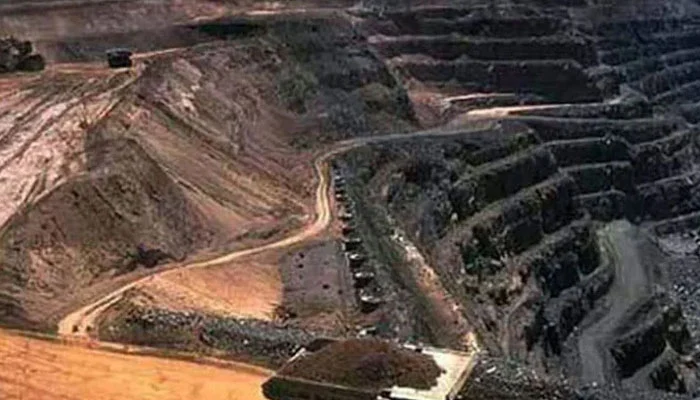ISLAMABAD, March 26: Pakistan’s Economic Coordination Committee (ECC) has officially approved $6.77 billion in funding for the first phase of the Reko Diq copper and gold mining project in Balochistan, marking a critical milestone for one of the country’s largest and most significant mining ventures.
This funding decision is set to advance the development of the project, which has faced several years of delays due to complex legal and financial challenges.
The financing plan for Phase 1 includes $5.57 billion allocated for capital expenditure, focusing on mine development and infrastructure.
An additional $1.2 billion is earmarked for interest payments on project financing and to account for inflation-related costs during construction.
Phase 2 of the project will be self-funded, relying on revenues generated from mining operations.
The Reko Diq project is a joint venture that involves the federal and Balochistan governments, state-owned enterprises, and Barrick Gold Corporation, a Canada-based company.
The Pakistani entities involved—Pakistan Petroleum Limited (PPL), Oil and Gas Development Company Limited (OGDCL), and Government Holdings (Private) Limited (GHPL)—hold a combined 25% stake in the project, while the Balochistan government owns another 25%. Barrick Gold holds the remaining 50% of the project.
ECC Approves Revised Financing Structure
The ECC also approved a revised financial structure for the project, formalizing the funding commitments of Pakistani stakeholders. Pakistan Minerals (Private) Limited (PMPL) will contribute $1.88 billion, and Balochistan Mineral Resources Limited (BMRL) will invest $1.13 billion.
To further ease the financial burden on national resources, the federal government plans to secure financing from commercial banks, with guarantees from international export credit agencies.
Read More:
Reko Diq is one of the world’s largest undeveloped copper and gold deposits.
The successful development of the project is expected to have a profound economic impact on Pakistan, generating billions of dollars in revenue, creating numerous jobs, and attracting significant foreign direct investment into the country’s mining sector.
Officials view the project as a key part of Pakistan’s long-term economic strategy, especially in addressing foreign exchange challenges.
The Reko Diq project has faced several obstacles over the years, including a protracted legal dispute with Barrick Gold and Antofagasta PLC.
In December 2022, Pakistan reached a settlement that allowed Barrick Gold to resume operations on the project.
Antofagasta exited the venture in exchange for a $900 million settlement paid by Pakistani entities. This agreement helped restore investor confidence and set a foundation for future investment.
ECC Reviews Reko Diq
The Economic Coordination Committee (ECC) of the Cabinet convened on Tuesday with Federal Minister for Finance and Revenue, Senator Muhammad Aurangzeb, chairing the meeting virtually from China, where he is attending the Boao Forum for Asia 2025.
Also Read: Reko Diq Mine to Generate $74 Billion in 37 Years
One of the main topics discussed was a summary presented by the Petroleum Division regarding the Reko-Diq Project.
The summary addressed changes in the overall development plan and the associated financial commitments and project financing considerations due to inflation and the expansion of the project’s scope.
This included adjustments related to the project’s capacity, energy mix, alternative water supply options, and updates to the processing plants and machinery.
The ECC took note of the factors contributing to the project’s cost escalations and approved the proposals outlined in the summary.
The committee directed the Ministries of Petroleum and Finance to maintain close coordination to ensure the timely implementation of the agreed actions.
The ECC reiterated its full support for the Reko-Diq Project, recognizing it as a project of significant national importance.
Also Read: More than $60bn Gold, Copper Reserves at Reko Diq
Additionally, the ECC approved a summary presented by the Ministry of Inter-provincial Coordination for a technical supplementary grant of Rs 200 million under the development grant of the IPC Division.
This grant will be allocated for the construction of the PSB Coaching Centre in Skardu.
The ECC emphasized the importance of ensuring that the training facility remains operational after construction.
The committee urged the Ministry of Inter-provincial Coordination to ensure the facility serves its intended purpose of providing sports resources to the local population and acts as a high-altitude training center for athletes competing at both national and international levels.









